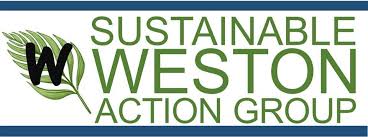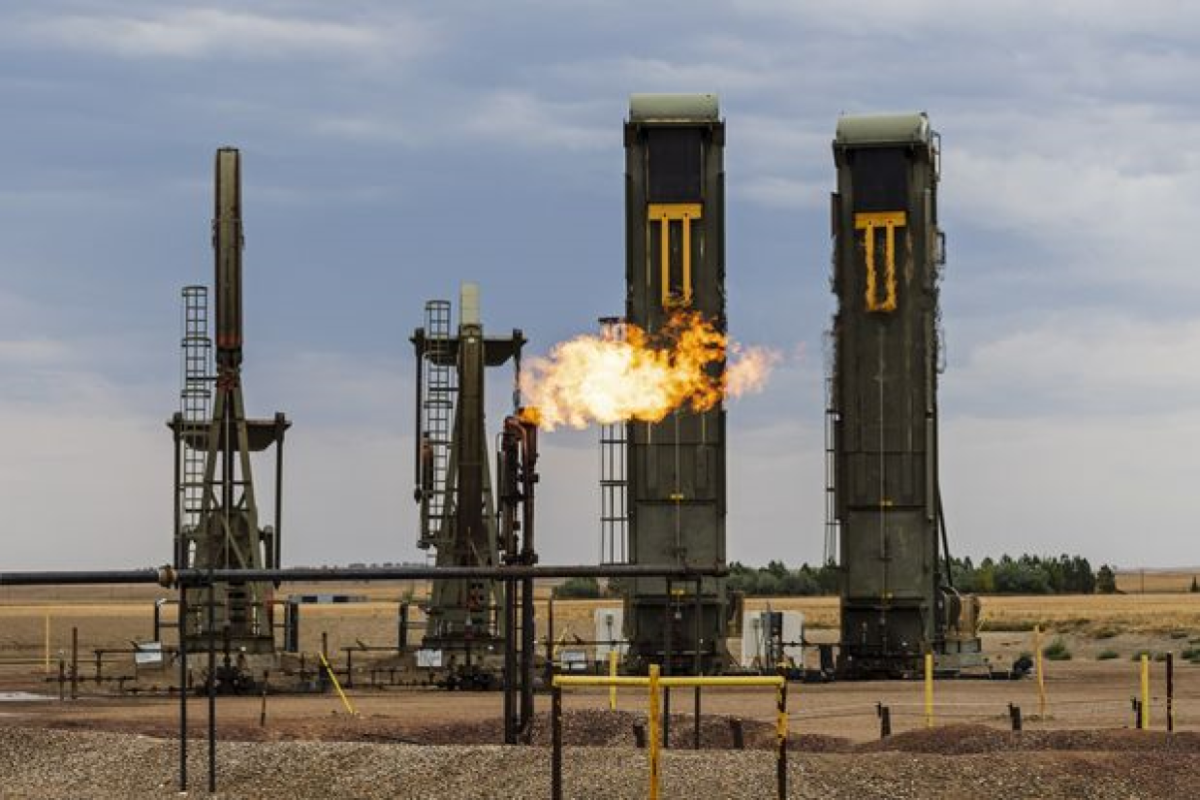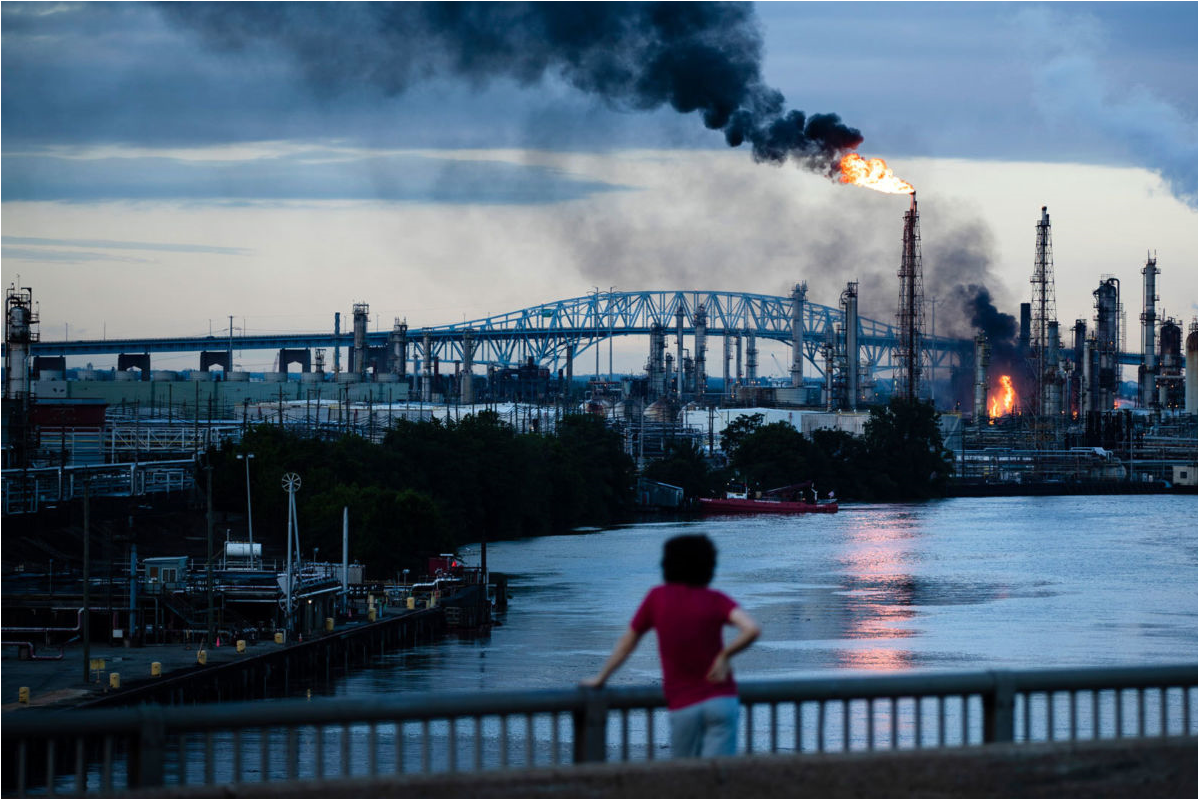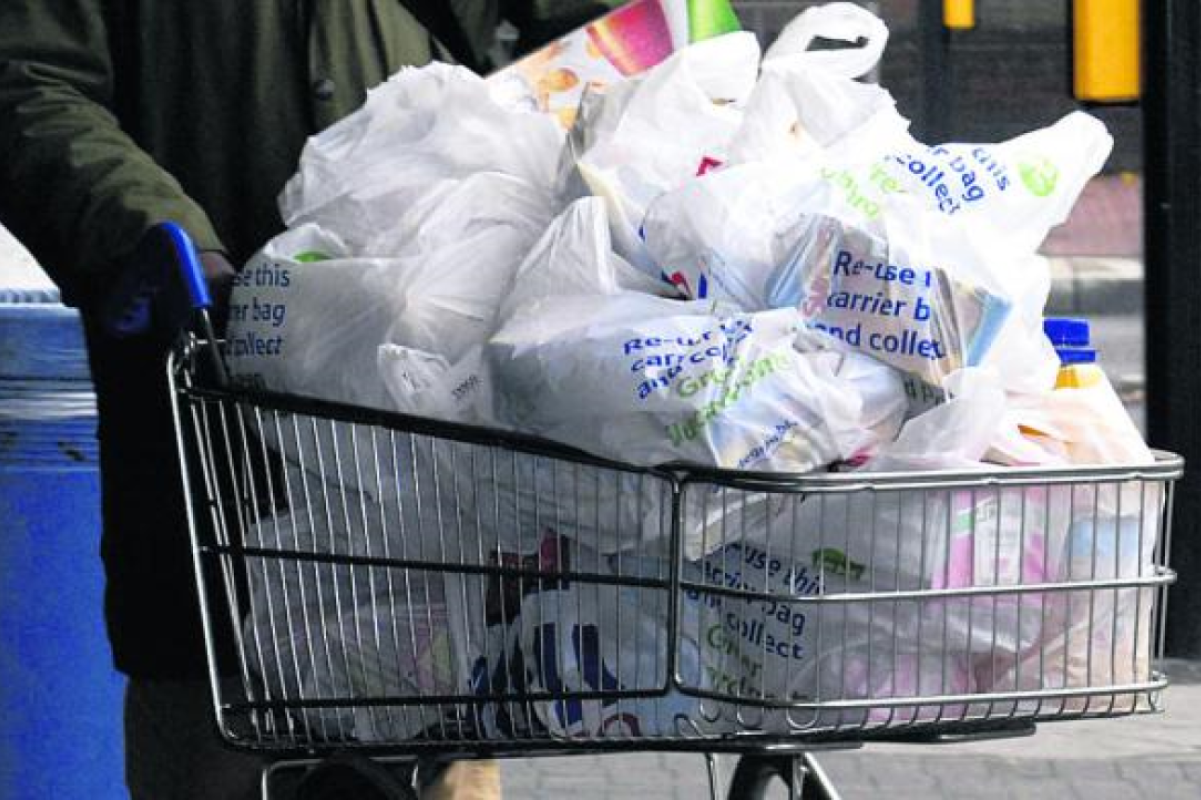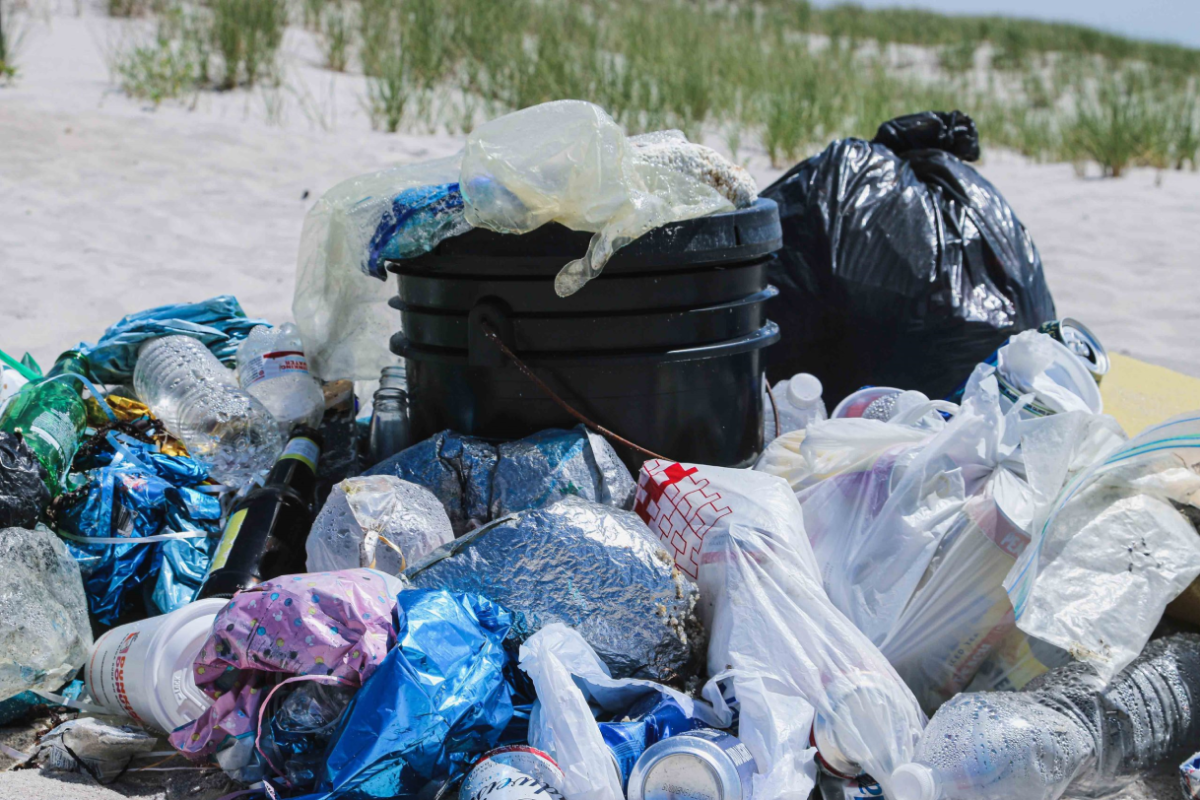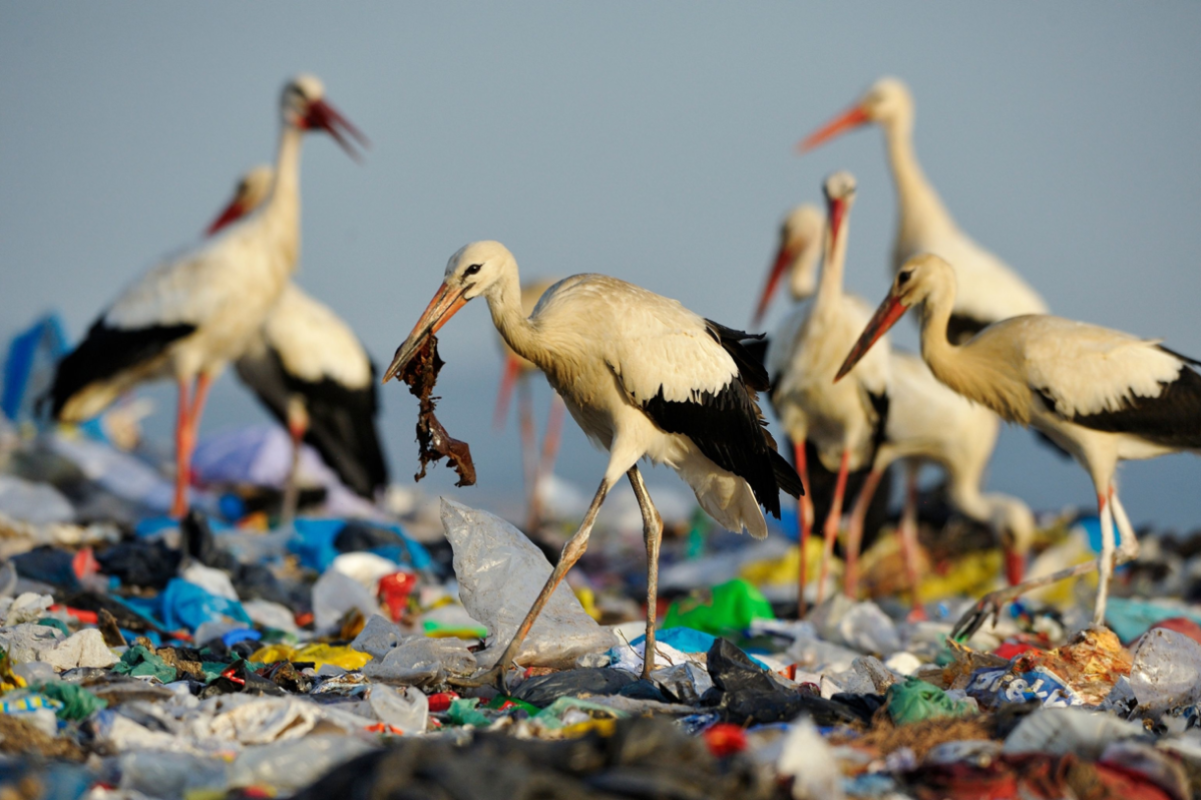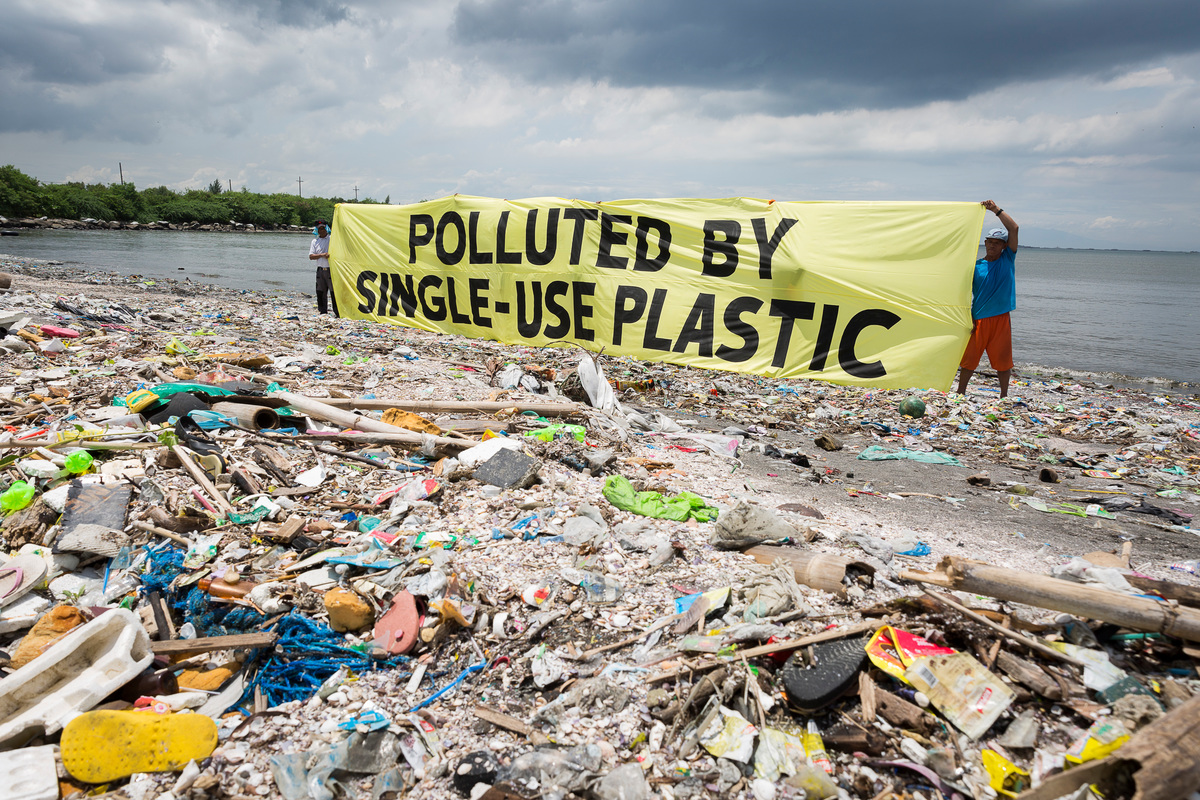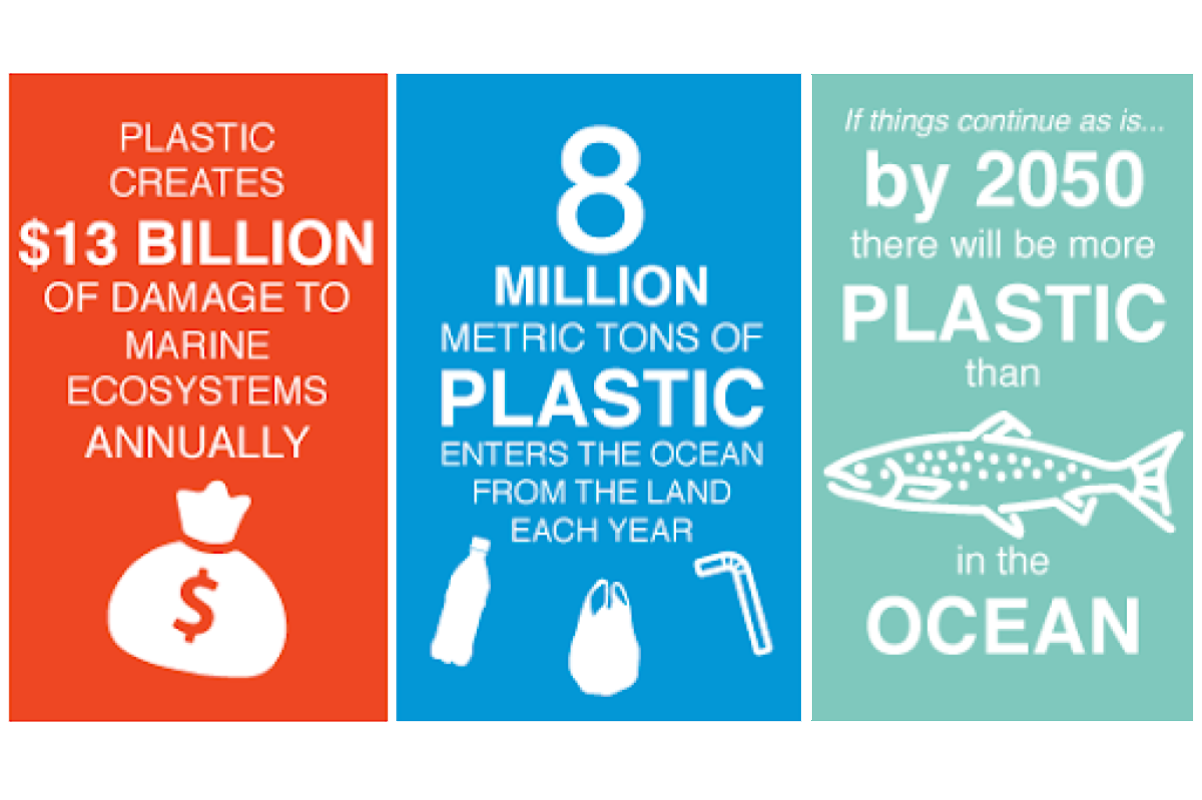From extraction to disposal, plastic negatively impacts human health, wildlife and the environment. Made from chemicals sourced almost exclusively from fossil fuels, the increasing use of plastic is also a major driver of climate change.
Over 350 million metric tons of plastic are produced worldwide each year, up from only 2 million metric tons in 1950. The largest user of plastic is the packaging industry. Single-use bags, bottles and other food packaging account for over one third of all plastics manufactured. Other major end markets include the textile, building and automotive industries.
Disposal of plastic waste has a terrible record. Of all the plastic ever produced only 9% has been recycled while about 12% has been incinerated. The remaining 79% has ended up in landfills or the environment.
The most common plastics found in the environment are single-use products. Often used for less than 30 minutes, these disposable items almost never disappear, breaking down over time into microscopic particles that accumulate in oceans and on land. Plastic waste has been found in the deepest parts of the ocean, inside wildlife, in the air, and in the drinking water and food that humans consume.
